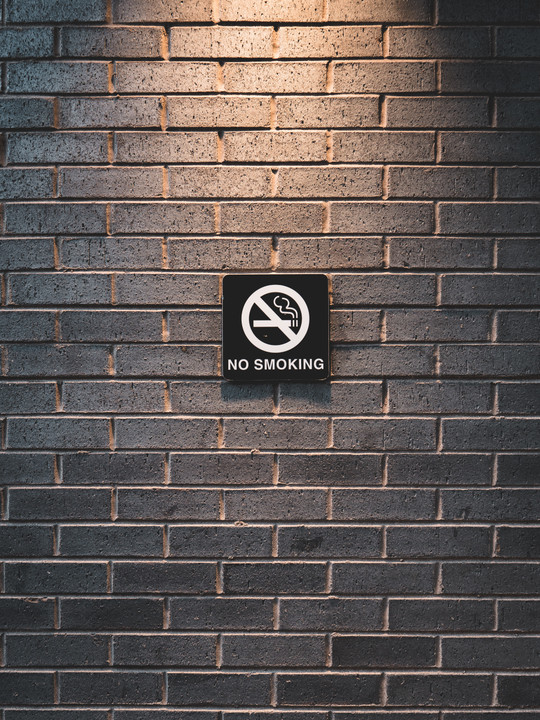Australia's Vaping Ban: A Boon for the Black Market and a Blow to Legitimate Businesses
The Australian Federal Government has recently announced a nation-wide ban on non-prescription vapes, with $737 million allocated in the Federal Budget for stronger legislation, enforcement, education, and support around vaping and smoking. This decision has been met with backlash from the vaping industry, as legitimate business owners fear that this will only exacerbate the current underground market and hurt their businesses. This article will explore the implications of the vaping ban on the industry and the concerns of business owners like Jackie Brown, the owner of iVape Bundaberg.
The Vaping Ban: Background and Rationale
The announcement by Federal Health Minister Mark Butler is aimed at addressing the growing concerns around the potential health risks associated with vaping. With the new legislation, vape users will be required to seek a prescription from a GP and collect vapes from a pharmacy. However, this move has been met with strong opposition from the vaping industry, which argues that the ban will only lead to an increase in black market traffic.
The Fallout for Legitimate Businesses
Jackie Brown, the owner of iVape Bundaberg, has expressed her frustration and disappointment with the government's decision. She believes that the ban will severely impact her business and eventually force her to close her doors after a decade in the industry. Furthermore, she argues that the prohibition of any substance has never worked in the past, and this move will only serve to punish legitimate stores for the actions of illegal tobacconists.
Ms. Brown's concerns also extend to the new regulations that require vape users to obtain prescriptions and collect vapes from pharmacies. She fears that this move will only exacerbate the current problem, as illegal tobacco sellers are unlikely to be deterred by the new laws. The prescription-based model, she argues, has only led to an increase in underage vaping with nicotine.
The Need for Sensible Regulation
While Ms. Brown agrees that more needs to be done to regulate the industry, she believes that the government's approach is flawed. Instead, she calls for sensible regulations, such as requiring vape shops to obtain licenses and maintain proper documentation. She also points out that Queensland does not require a license to sell tobacco, which highlights the inconsistency in the government's approach to regulation.
The Loss of Expertise and Knowledge
Another concern raised by Ms. Brown is the potential loss of expertise and knowledge if pharmacies are to be the ones dispensing prescription vapes. She argues that pharmacists, who already have a significant workload, will not possess the same level of knowledge about vaping as experienced vape shop owners. This could lead to an information gap and potentially harm consumers who rely on the guidance of knowledgeable professionals when choosing the right vape product for their needs.
The Ignored Benefits of Vaping
Ms. Brown also asserts that the government is choosing to ignore the mountain of research supporting the positive aspects of vaping as a safer alternative to smoking. She points out that vaping has never killed anyone; it is the substances people vape that are potentially harmful. In contrast, cigarettes and alcohol, which are readily available, generate significant tax revenue for the government.
The Future of the Vaping Industry
The vaping ban in Australia has generated significant debate and concerns among business owners and industry professionals. Jackie Brown's story highlights the potential fallout for legitimate businesses and the possible consequences for consumers. As the government moves forward with its crackdown on vaping, it remains to be seen whether their approach will prove effective in addressing the public health concerns surrounding this issue or if it will only serve to exacerbate existing problems and harm businesses like iVape Bundaberg.
Unanswered Questions: The Peculiar Case of Vape Regulation
An unresolved question that lies at the heart of this debate is why the government has chosen to single out vaping for strict regulation when other potentially harmful substances, such as tobacco and alcohol, are readily available. Ms. Brown points out this incongruity, arguing that the government seems more interested in protecting its tax revenue from these substances than in genuinely helping adults quit smoking.
Additionally, Ms. Brown suggests that the vaping ban might be more politically motivated than scientifically grounded. The government's decision to ban recreational vaping was made without any prior consultation with industry stakeholders. This lack of transparency has raised concerns about the government's motives and the fairness of its decision-making process.
The Black Market: A Dark Side Effect of the Ban
Beyond the potential fallout for legitimate businesses, the vaping ban could also have unintended consequences on the black market. As Ms. Brown warns, illegal tobacco sellers are unlikely to be deterred by the new regulations. Instead, they might see this as an opportunity to increase their operations, which could lead to a surge in black market traffic.
Moreover, the new legislation could inadvertently make vaping products more accessible to underage users. As Ms. Brown notes, the introduction of the prescription-based model has coincided with an increase in underage vaping with nicotine. In the absence of legitimate vape stores, these underage users might be forced to turn to the black market to get their supplies.
The Loss of Consumer Choice and Autonomy
The vaping ban also raises concerns about consumer choice and autonomy. For many adults, vaping serves as a safer alternative to smoking and a means to quit the habit. By taking away this option, the government is effectively limiting their choices and forcing them to rely on other methods to quit smoking.
Furthermore, the ban could also affect those who use vapes for recreational purposes. With the new regulation, these individuals will need a prescription to obtain vapes, a requirement that could be seen as an intrusion on their personal freedoms.
The Implications for Public Health
While the government has justified the vaping ban on public health grounds, critics argue that this move might actually be counterproductive. If the ban pushes more people to the black market, where the safety and quality of vaping products are not guaranteed, it could expose them to greater health risks.
Moreover, the ban could potentially deter smokers from transitioning to a less harmful alternative. As Ms. Brown notes, the liquids sold in her store contain only three ingredients, making them a safer choice compared to cigarettes.
Conclusion
As the debate around the vaping ban in Australia continues, it's clear that the issue is multifaceted, touching on matters of public health, consumer rights, and the survival of legitimate businesses. While it's the government's responsibility to protect public health, the concerns raised by Ms. Brown suggest that the current approach might not be the most effective or fair. It's time for a more nuanced conversation about vaping and its regulation, one that takes into account the experiences and insights of industry stakeholders like Ms. Brown.
Explore Popular Articles
-
Vaping and Sports Performance: Enhancer or Detractor
May 16th 2023Athletes are always looking for ways to improve their performance, therefore it's important to inves
-
Vaping and the LGBTQ+ Community: Insights and Experiences
May 16th 2023Millions of people worldwide have taken up vaping in recent years as a healthier alternative to smok
-
Impact of Vaping on Employee Productivity at Work
May 16th 2023Vaping, a tobacco-free alternative, has exploded in popularity in recent years. Concerns have been e





